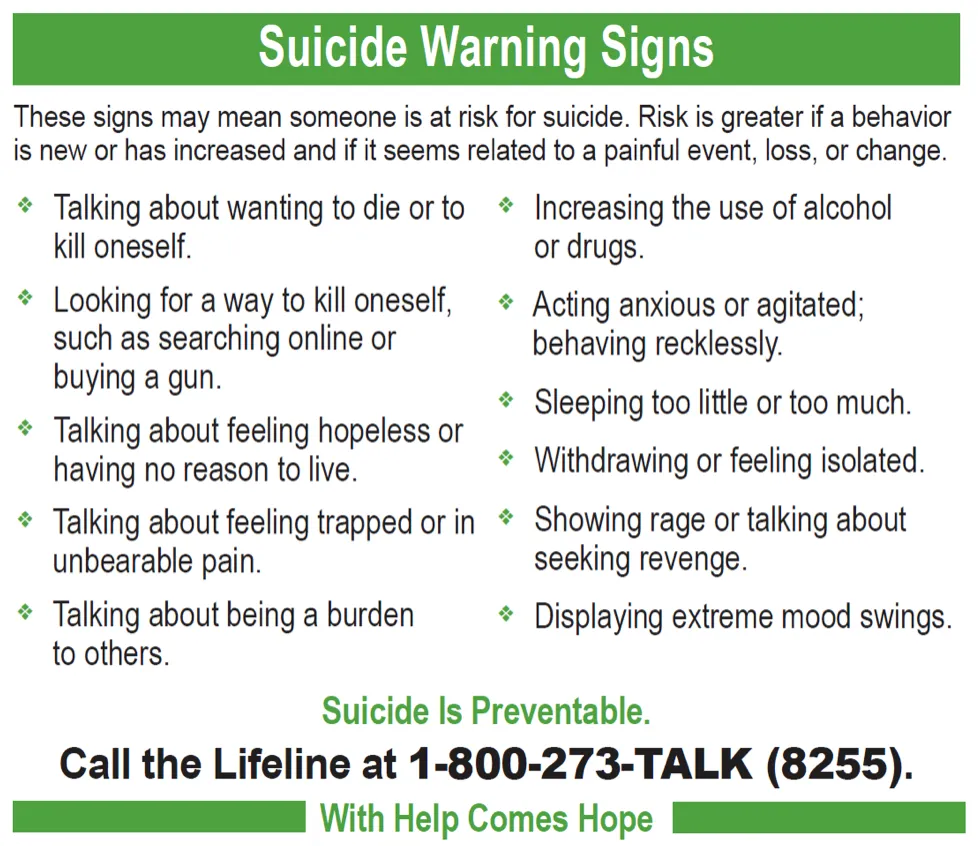Understanding Warning Signs of Suicide
Recognizing the warning signs of suicide is crucial for intervention. Common indicators include expressions of hopelessness, withdrawal from social interactions, and drastic changes in behavior. If someone is exhibiting these signs, it’s imperative to take them seriously and seek help immediately.
For example, a person who suddenly becomes very withdrawn and stops engaging in activities they once enjoyed may be experiencing severe emotional distress. Additionally, verbal cues such as talking about feeling trapped or being a burden can signal that someone is in crisis and needs support.
How to Approach Someone in Crisis
Approaching someone in crisis requires sensitivity and care. It’s important to create a safe space where they feel comfortable sharing their feelings. Use open-ended questions and listen actively without judgment to encourage them to express what they’re going through.
For instance, you might say, “I’ve noticed you’ve been feeling down lately. I’m here to listen if you want to talk about it.” This can help the individual feel supported and may prompt them to share their struggles, leading to necessary interventions.
Emergency Resources for Mental Health Support
In times of mental health crises, having access to emergency resources can be life-saving. Various hotlines and services are available around the clock to provide immediate assistance to those in need, including the National Suicide Prevention Lifeline and local crisis centers.
For example, the National Suicide Prevention Lifeline offers free, confidential support 24/7 at 1-800-273-TALK (1-800-273-8255). Additionally, specialized services like the Veterans Crisis Line provide tailored support for veterans, ensuring that all individuals can access the help they require during a crisis.
Long-Term Support Options After a Crisis
After a crisis, ongoing support is vital for recovery and mental well-being. This may include therapy, support groups, or community resources that help individuals navigate their emotional challenges and prevent future crises.
For instance, many organizations offer peer support groups where individuals can share their experiences and coping strategies. Engaging in therapy with a qualified mental health professional can also provide the tools needed to manage mental health effectively and foster resilience.



